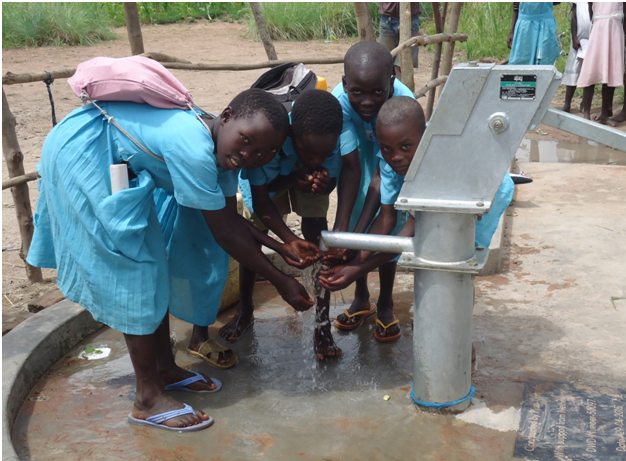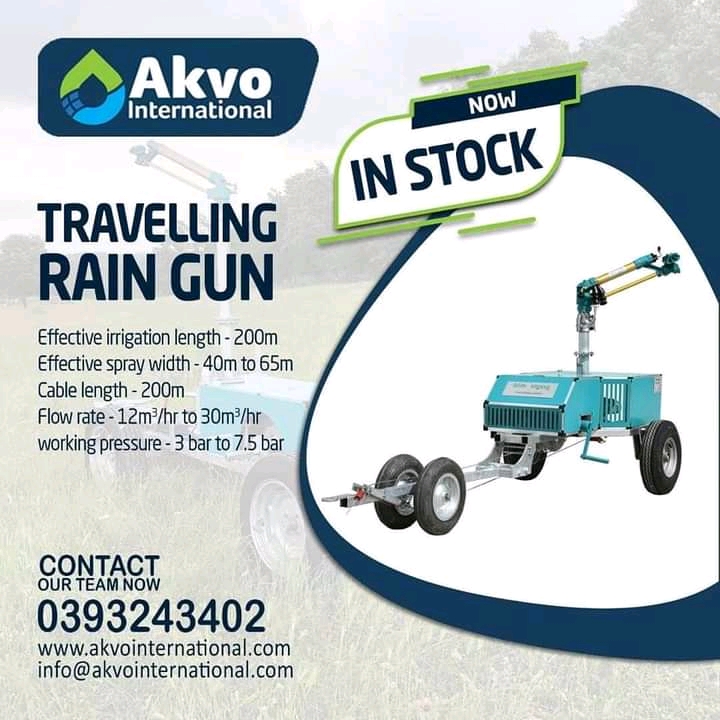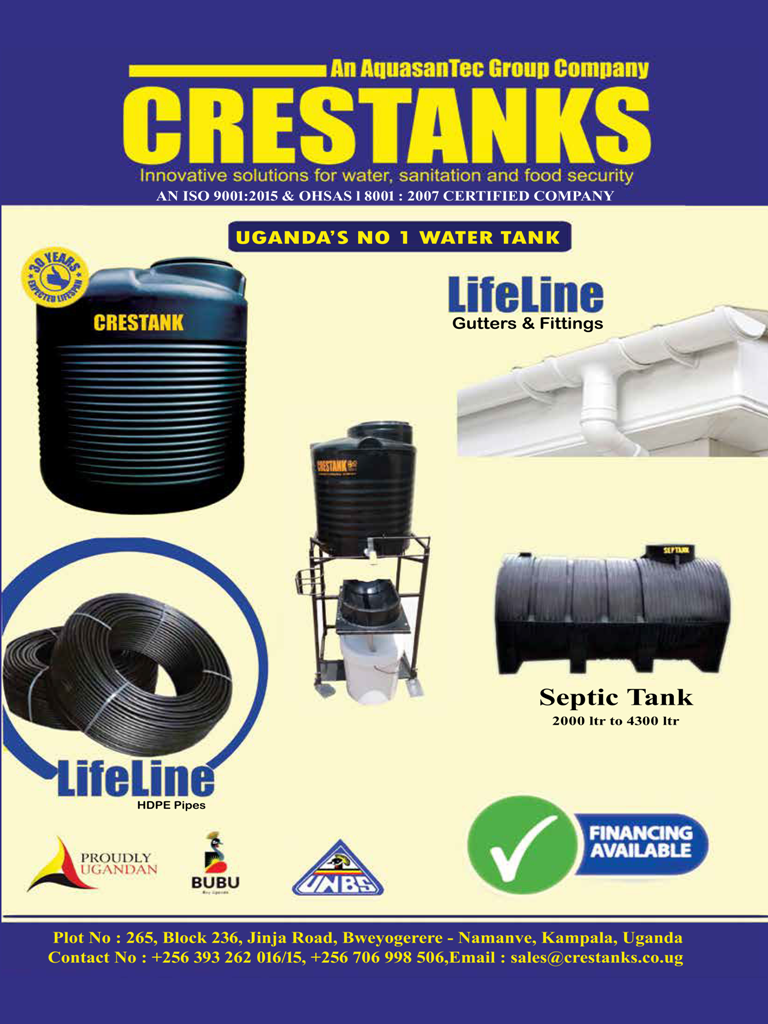Introduction
Plan International is an independent development and humanitarian organisation that advances children’s rights and equality for girls. We believe in the power and potential of every child. But this is often suppressed by poverty, violence, exclusion and discrimination with girls being the most affected. As we work with children, young people, supporters and partners, we strive for a just world, tackling the root causes of the challenges girls and vulnerable children face. We support children’s rights from birth until they reach adulthood. We also help children to prepare for – and respond to – crises and adversity. Driving changes in policy at local, national and global levels are our hallmarks. For over 80 years, we have been building powerful partnerships for children and are now active in more than 70 countries.
In Uganda, the organisation has been in operation for over 27 years. The current programmes are guided by the five-year country strategy (FY2017 – 2021), current national & global context as well as situations affecting young people. Among the focus programmes is the Community Based WASH. Plan international Uganda’s experience in WASH programming extends over a period of 20 years on a number of integrated water and sanitation programmes through interventions including:
- Community Led Total Sanitation (CLTS),
- Sanitation Marketing,
- Menstrual Hygiene Management,
- Integration of WASH into HIV/AIDS Home-Based Care,
- School-led total sanitation, and
- Water source protection and construction.
Community based WASH is a key country programme that contributes to learning through: increasing access to WASH facilities for adolescent girls to facilitate effective Menstrual Hygiene Management (MHM) and improving access to basic sanitation to facilitate children’s development and ability to learn and live respectively.
The programme adopts the district wide approach while focusing on key components of demand creation for access and use of safe sanitation, through Community-led total sanitation, influencing policies and delivery strategies, capacity building of local actors, and demonstration of innovative approaches including men and boys as MHM champions of change. The mode of delivery is through partnership with a wide range of collaborators including relevant line ministries of: Water & Environment, Health, Education & Sports , private sector ( AFRIpads Uganda Ltd,), Government Parastals (National Water & Sewage Corporation),Umbrella Networks (Uganda Water & Sanitation Network), & district local governments of Kamuli, Buyende, Tororo, Lira, Aleptong, Nebbi, Yumbe and Adjumani.
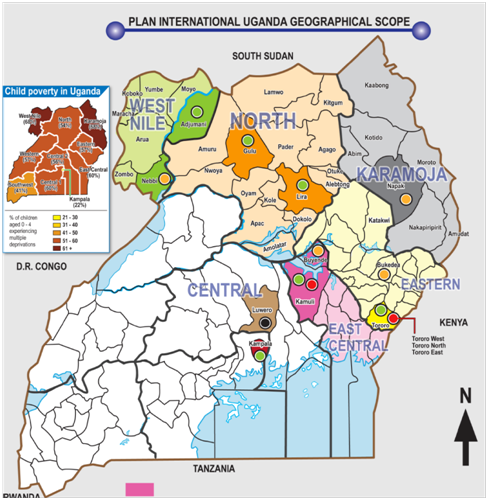
WASH initiatives in financial Year 2018/2019 have been supported with funds from a spectrum of development partners including: Dutch Post code lottery, Foreign Affairs Ministry of Netherlands and Global Affairs Canada.
To achieve its strategy under WASH programing that contributes to national sanitation and hygiene indicators in conformity with SDG 6, Plan International Uganda (PIU) has continued supporting adolescent girls and women to manage their menstruation with dignity and privacy. To this effect, multiple stakeholders including girls, boys, local social enterprises, district local governments , communities, civil society organisations have been engaged to improve the knowledge attitude and practices on MHM as well as increasing access to hygienic re-useable sanitary pads.
Impact reached (2014-2019)
| Intervention
|
Girls | Women | Boys | Men | Totals |
| MHM Intervention
|
66,986 | 45,554 | 45026 | 36,018 | 193,584
|
- 150 schools out of the 188 supported on MHM initiatives have incorporated making of emergency pads as part of the art and craft sessions and dedicated budgets to support WASH initiatives including in purchase of MHM materials.
- 23,150 young people (16,085 girls, 7065 boys) were empowered with appropriate MHM knowledge, and life skills on making of hygienic re-useable pads. Post training monitoring and support revealed adoption of hygienic behaviours and use of sanitary pads among girls, positive attitude change especially among boys in viewing of menstruation as normal, reducing stigmatization of girls during their menses and erosion of myths and taboos on MHM.
- 3 distributors (2 lira, 01 Tororo) and 321 outlets for So Sure sanitary were established as part of the distribution network in partnership with AFRIpads (U) Ltd and supported the marketing and sale of 50,910kits
- 10 established women groups at community level make pads as side income venture and have ably produced and sold at least 1600 kits in Northern Uganda
- 34 Civil Society Organisations (CSOs) strengthened on coordination learning and sharing on sanitation issues. Plan International based on its position as the chair for the Hygiene & sanitation working group under UWASNET has continued facilitating periodic engagements of CSOs through the technical working group. As part of its approach to influence uptake of holistic Menstrual Hygiene management delivery ,CSOs including Fields of Life, Water Mission, UMURUDA, Partners for community Transformation, World Vision, Living Water International, Community integrated development Initiatives, African evangelistic Enterprises, SNV and International life fund benefited from the National MHM TOT
- In partnership with the Ministry of Education and Sports and other stakeholders, a national TOT MHM manual for teachers and other stakeholders was developed to facilitate standardisation of MHM Information
Sanitation and Hygiene progress (Basic service level)
- Over the last financial year, 99 villages (50 Buyende, 26 Kamuli, and 23 Nebbi) were triggered in community-led total sanitation (CLTS) & 52 Villages: Fifty Two per cent (52%) realised open defecation free (ODF) status and have improved sanitation at basic sanitation service level. The gradual realisation was a result of the change in criteria of certification of ODF in alignment to the basic sanitation service levels coupled with the relapse owing to the heavy rains and storms that destroyed sanitation infrastructure in Buyende and Kamuli
- 61,954 people supported to gain access to sanitation and have improved their hygiene practices through our engagement of local leaders both at district and sub-county level and coupled with vigilant structures (sanitation committees) in Buyende, Kamuli & Nebbi. The improvements on access to sanitation for mothers released have positive impact on child growth and survival especially for children under five years.
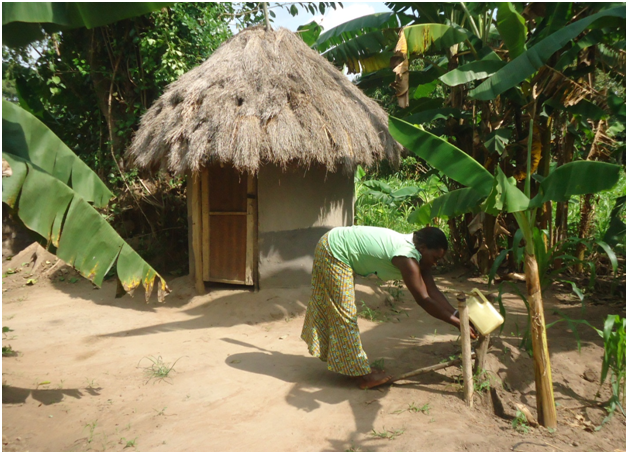
Safe Clean Water
- 23,796 people gained access to safe clean water within 1Km radius through the sinking of 33 boreholes and extension of piped water system
